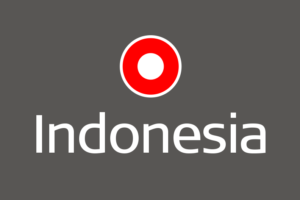Indonesia: Disability: Standard Disability Management Practices in Indonesia
 Article provided by Integra, Asinta’s partner in Indonesia.
Article provided by Integra, Asinta’s partner in Indonesia.
In 2011, the Indonesian Government reformed its National Social Security System and passed Law No. 24 on the Social Security Organizing Body (Badan Penyelenggara Jaminan Sosial or “BPJS”) (the “BPJS” Law) to help meet the basic needs of the country’s population.
All employees in Indonesia, including expatriates who have worked for a minimum of six months, must register and participate in BPJS. Employers and employees, by payroll deduction, must make mandatory contributions to BPJS of Employment. For employees, the premium is 5% of monthly salary, up to a salary cap of Rp 8 million. In the private sector, the employer is responsible for 4% and the employee is responsible for 1%. Meanwhile, for public sector employees, the split is 3% and 2%.
Employment Security, including work accident, old-age, pension, and death benefits, is managed by BPJS of Employment. If a worker has an accident that results in a disability, BPJS provides work accident benefits. The BPJS includes compensation for temporary incapacity at 100% of monthly salary for the first six months; 60% from monthly salary for the second 6 months; the third six months (and forth) will be given 50% of monthly salary. In addition to contributing to the BPJS, employers are also required to pay sick leave in the event of injury or illness, provided the employees have a condition that is verified in a medical statement.
An employee who is severely sick is entitled to payment of their salary as follows:
- Full wages for the first four months of sickness absence
- 75% for the fifth to the eighth month
- 25% for any remaining period of absence prior to termination of employment
Supplemental Disability Programs
Most of the companies providing supplemental disability benefits to employees provide either Total Permanent Disability (TPD), Accidental Death and Disability (ADD) or Temporary Disablement. TPD is a rider to a life insurance program that provides compensation if the insured is suffering from a disability caused by illness or accident. The employer typically provides 12 to 36 monthly salary as the sum insured of total permanent disability.
ADD is also a rider to life insurance that gives income protection to the insurer member if they are suffering from disability due to an accident.
There are two types of ADD insurance coverage:
- ADD-A: provides compensation if the member dies due to an accident
- ADD-B: if the member suffers from total permanent loss/disability due to an accident
Temporary disablement, although not as common amongst Indonesian employers, compensates a specified amount stated in the policy, with regular payments to the insured member up to a limited period of time (e.g. three months, six months, or one year).
